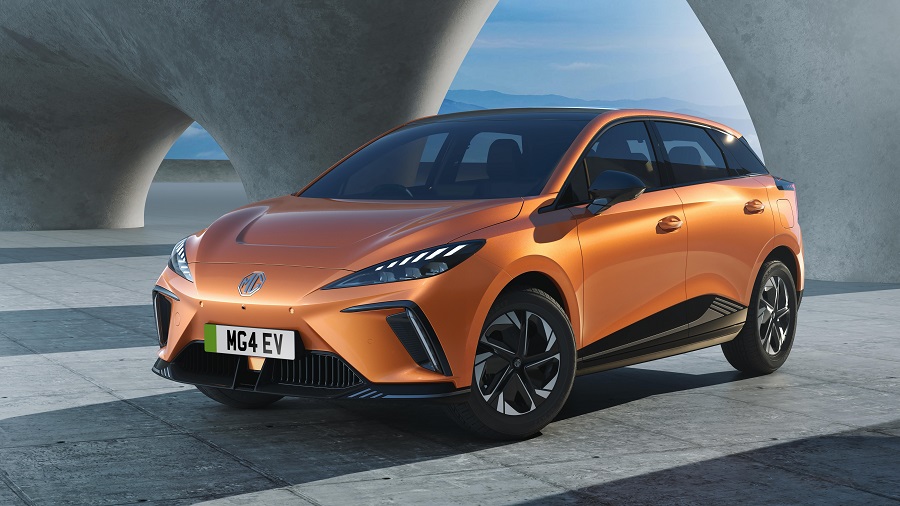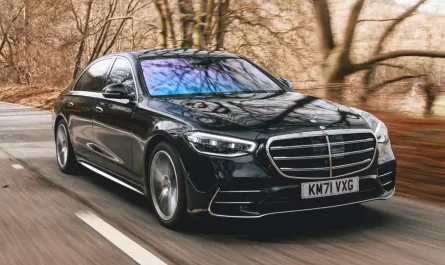Electric Cars Best EV Under $48,000
EVs are no longer just a luxury item, and many models are now being sold way below the average new car price in America. According to Kelley Blue Book, the average new vehicle price has skyrocketed to $48,000. But we’ve got a list of 10 electric vehicles (EVs) that not only cost a lot less but also come packed with savings in ways you might not have considered.
Before we dig into these options, remember: when you buy an electric car, you’re saving more than just upfront costs. Think about all the gas, oil changes, tune-ups, and transmission flushes you won’t be paying for. It all adds up. Plus, there’s the elusive federal tax credit, which can knock even more off the price for some EV models.

How Electric Vehicles Save You Money
Sure, the price of an electric car might seem high at first glance, but the savings come rolling in every day you drive. Gas prices fluctuate, but one stable thing? Zero visits to the gas station.
Let’s not forget maintenance. Traditional cars run on systems involving transmissions, exhausts, and engine oil—all stuff that needs changing and fixing. With electric cars? Not so much. No more paying for oil changes, tune-ups, transmission fluids, or that exhaust mod the neighbors are raving about.
But here’s where things get even better: EVs generally qualify for a little-known gem—up to a $7,500 federal tax credit. And no, this credit is not factored into the prices in our list, meaning your savings could stack up even higher.
The Elusive Federal Tax Credit
Before we dive into the cars, let’s finish discussing the huge role the federal tax credit plays in bringing these prices down. Qualifying buyers can receive up to $7,500 in tax credits, making those eye-watering prices increasingly palatable. But, as with anything that sounds too good to be true, there are qualifications.
Not everyone will qualify and not every car qualifies either. Your salary, the price of the car, where it was built, and even where its battery parts come from all factor in. Still, there’s a loophole. You see if you lease instead of buy, it’s the bank that qualifies for the $7,500 credit but often passes those savings onto you in the form of lower lease payments. So, if you’re stuck on the whole “Do I buy or lease?” fence, leasing might just be the way to go.
And now, the fun part: let’s learn about the top EVs in 2023 that won’t require you to auction off your soul to afford one.
Hyundai Ioniq 5
First on our list, priced just under $43,000, the Hyundai Ioniq 5 ticks all the boxes for anyone looking for a balanced electric car. It looks like a throwback thanks to its retro design but packs modern-day performance.
- EPA range: 220 miles
- 0 to 60 mph: 7.3 seconds
- Max charging rate: 350 kW (Charges 10% to 80% in just 18 minutes)
What sweetens the deal? For the first two years of ownership, Hyundai gives you unlimited free charging at Electrify America (up to 30 minutes per session). Unfortunately, the Ioniq 5 doesn’t qualify for the federal tax credit, but with this level of performance and free charging, it’s still a standout.
Hyundai Ioniq 6
Currently priced similarly to the Ioniq 5 at just under $43,000, the Hyundai Ioniq 6 is best described as its glamorous sibling—good-looking and highly sought after. It’s already racking up awards like World Car of the Year, among others.
- EPA range: 240 miles
- 0 to 60 mph: 7.4 seconds
- Charging: The same 350 kW capacity as the Ioniq 5, allowing an 18-minute charge from 10 to 80%.
Again, two years of complimentary charging come bundled with the deal. But just like with the Ioniq 5, you can’t count on a federal tax credit to help drive the price much lower.
Tesla Model 3
Despite my reservations (don’t just buy it because it’s Tesla), the Tesla Model 3 makes it onto this list. Objectively, it offers solid stats and performance. Currently priced under $42,000 and eligible for the tax credit, you can bring the cost down to around $34,000.
- EPA range: 272 miles
- 0 to 60 mph: 5.8 seconds
- DC fast charging: 147 miles added in just 15 minutes
Now here’s the catch: prices fluctuate almost weekly—think more like Tesla stock prices than car prices. Right now, it’s priced in the low $40Ks but always check before purchasing. There’s a good chance you might open your wallet a little wider tomorrow.
Kia Niro EV
The Kia Niro EV is already in its second generation and solidifies its place in this list at just over $40,000. However, much like other models in this price bracket, it doesn’t come with a federal tax credit.
- EPA range: 253 miles
- 0 to 60 mph: 7.1 seconds
The Kia is a little slower when it comes to charging. It takes almost 45 minutes to reach that 10-80% charge, but Electrify America offers free charging for about 2,000 miles, which is helpful. Volkswagen ID.4
The Volkswagen ID.4— which I’ve personally owned—is priced at just over $40,000. It’s had some software hiccups, but the 2023 model promises a smoother ride, and it does come with the federal tax credit.
- EPA range: 209 miles
- 0 to 60 mph: 7.1 seconds
- Charging: 10 to 80% in about half an hour
While it may not be the speediest EV on the market, Volkswagen is offering three years of free charging from Electrify America, capped at 30 minutes per session.
Mazda MX-30
Let’s not spend too much time here. At a price of around $35,000, the Mazda MX-30 scores points for affordability, but that price is hard to justify for just 100 miles of range and some of the slowest charging in the industry.
- EPA range: 100 miles
- Max charging: 50 kW (Glacially slow by today’s standards)
Bottom line: Unless you’re only driving very short distances, this one’s a tough sell.
Electric Mini Cooper
Like the Mazda MX-30, the Electric Mini Cooper is priced around $35,000 and doesn’t offer much better range (just 114 miles of EPA range). It does, however, have a huge fan base thanks to its iconic Mini Cooper design.
- EPA range: 114 miles
- Max charging: 50 kW
It’s undeniably fun to drive. Whether that make up for the limited range? That’s up to you.
Hyundai Kona EV
Hyundai strikes again with their third entry on this list: the Hyundai Kona EV, priced at about $35,000. It offers significantly more range than the Mini or the Mazda, making it a better option for longer drives.
- EPA range: 258 miles
- 0 to 60 mph: 7.9 seconds
- Charging: 10 to 80% in around 47 minutes
It doesn’t qualify for the tax credit but is still a solid choice with a reasonable price.
Nissan Leaf
The Nissan Leaf has been around since 2010, making it one of the first electric vehicles available to everyday drivers. It’s also one of the only two EVs on this list priced under $30,000. But the age of the design shows in places.
- EPA range: 149 miles
- Max charging: 50 kW (40 minutes for 0-80%)
Nissan still offers the Leaf with an optional 8-track player, but seriously, we are in 2023. The Leaf is showing its age but remains a budget-friendly choice.
Chevy Bolt EV
At just $27,000, the Chevy Bolt EV steals the show. It was one of the first to break that magic 200-mile range barrier and has emerged from some well-publicized recalls to be a solid, affordable choice. With a $7,500 federal tax credit available, that price drops to under $20,000.
- EPA range: 259 miles
- 0 to 60 mph: 6.5 seconds
- Max charging: 55 kW
Due to its incredibly competitive price and decent range, the Bolt EV could seriously challenge Tesla if Chevy ramps up production and markets it more aggressively.
Which EV Will You Drive Home?
With so many options under $48,000, there’s an electric car out there to fit almost everyone’s budget and needs. Whether it’s the Chevy Bolt offering massive value, or the Hyundai Ioniq 6 bringing home the awards, this list shows that affordable, high-performing electric vehicles are no longer unicorns.



